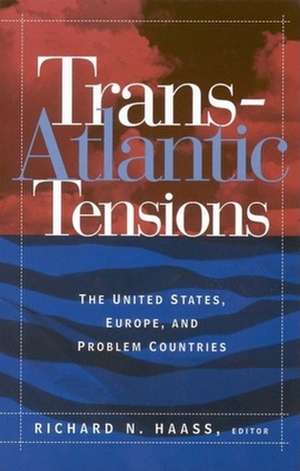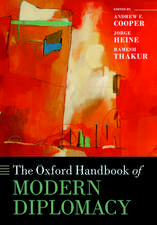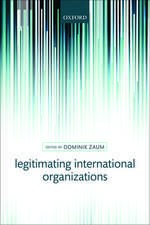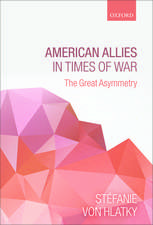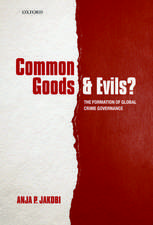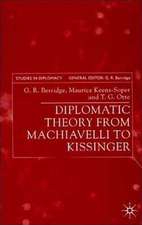Trans-Atlantic Tensions: The United States, Europe, and Problem Countries
Editat de Richard N. Haassen Limba Engleză Paperback – mai 1999
Americans and Europeans are divided by more than an ocean when it comes to designing and carrying out policies toward countries that repress human rights, develop weapons of mass destruction, and/or support terrorism and subversion. Accounting for this divide are distinct interests, domestic politics, and above all profound disagreements between Americans and their counterparts in European capitals and Brussels over what tools of foreign policy--sanctions, engagement, military force--to empty to change the behavior of problem countries. The result is that Americans and Europeans often work at cross purposes--and that disagreements over policy toward problem countries threaten both to undermine efforts that promote desired change and transatlantic cooperation in other areas, be it within Europe or in building an open world trading system. This book examines the "problem" countries of Cuba, Iran, Iraq, Libya, and Nigeria. The authors explain sources of American and European differences, consequences for policies designed to influence problem states, and prospects for bridging transatlantic policy rifts. A conclusion by Richard N. Haass places these differences in perspective and suggests what Europe and the United States need to do to ameliorate this tension--and what could transpire if they do not.
Preț: 199.88 lei
Nou
Puncte Express: 300
Preț estimativ în valută:
38.25€ • 39.71$ • 31.90£
38.25€ • 39.71$ • 31.90£
Carte tipărită la comandă
Livrare economică 22 martie-05 aprilie
Preluare comenzi: 021 569.72.76
Specificații
ISBN-13: 9780815733515
ISBN-10: 0815733518
Pagini: 251
Dimensiuni: 152 x 229 x 18 mm
Greutate: 0.36 kg
Ediția:New.
Editura: Brookings Institution Press
Colecția Brookings Institution Press
Locul publicării:United States
ISBN-10: 0815733518
Pagini: 251
Dimensiuni: 152 x 229 x 18 mm
Greutate: 0.36 kg
Ediția:New.
Editura: Brookings Institution Press
Colecția Brookings Institution Press
Locul publicării:United States
Notă biografică
Richard N. Haass is president of the Council on Foreign Relations. Until June 2003 he was director of policy planning for the Department of State, where he was a principal adviser to Secretary of State Colin Powell on a broad range of foreign policy concerns. Previously, Haass was vice president and director of Foreign Policy Studies at the Brookings Institution. He was also special assistant to President George H. W. Bush and senior director for Near East and South Asian affairs on the staff of the National Security Council, 1989-93. He is the author or editor of ten books in American foreign policy, including The Opportunity: America's Moment to Alter History's Course.
Descriere
Americans and Europeans are divided by more than an ocean when it comes to designing and carrying out policies toward countries that repress human rights, develop weapons of mass destruction, and/or support terrorism and subversion. Accounting for this divide are distinct interests, domestic politics, and above all profound disagreements between Americans and their counterparts in European capitals and Brussels over what tools of foreign policy--sanctions, engagement, military force--to empty to change the behavior of problem countries. The result is that Americans and Europeans often work at cross purposes--and that disagreements over policy toward problem countries threaten both to undermine efforts that promote desired change and transatlantic cooperation in other areas, be it within Europe or in building an open world trading system. This book examines the "problem" countries of Cuba, Iran, Iraq, Libya, and Nigeria. The authors explain sources of American and European differences, consequences for policies designed to influence problem states, and prospects for bridging transatlantic policy rifts. A conclusion by Richard N. Haass places these differences in perspective and suggests what Europe and the United States need to do to ameliorate this tension--and what could transpire if they do not.
